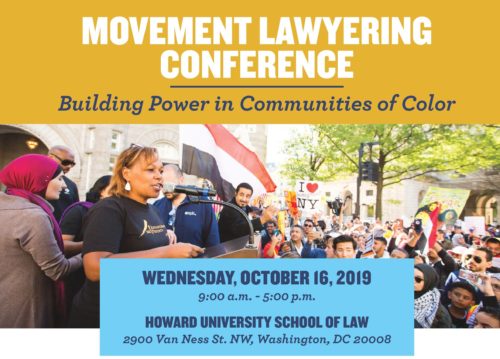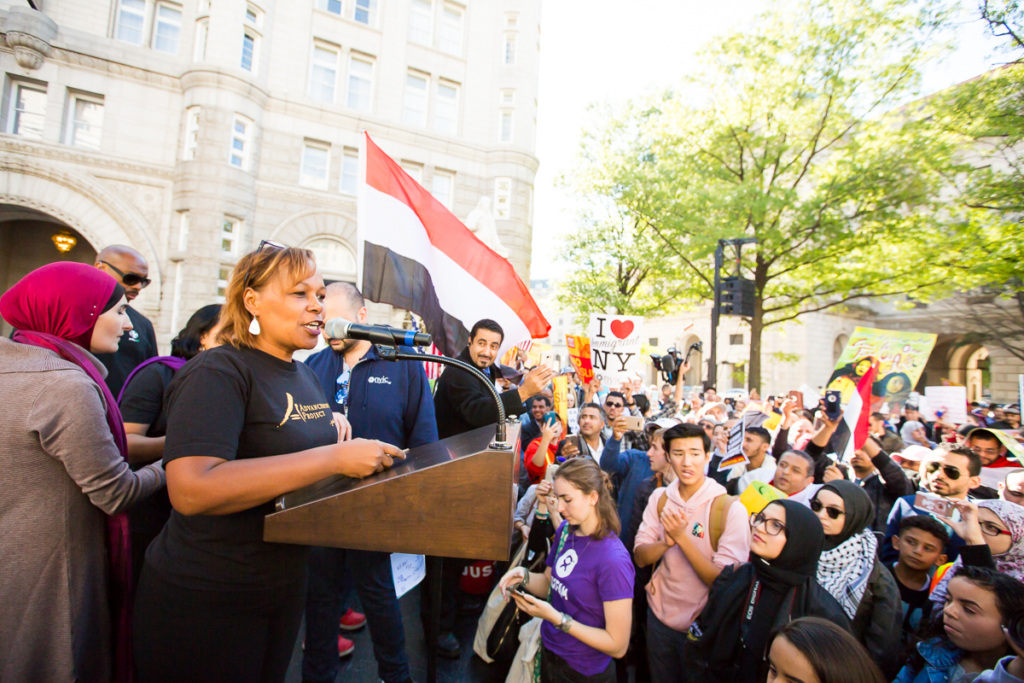The role of movement lawyering in empowering communities
October 8, 2019

October 8, 2019
By Judith Browne Dianis

There’s no telling when a flashpoint moment will ignite a movement. In the five years since Michael Brown was gunned down by former Ferguson Police Officer Darren Wilson, people around the country came together to organize, advocate and radically reimagine what safety should look like in their communities.
Brown’s death proved a catalyst for change. Residents fed up by years of police brutality and elected officials who ignored the community, took to the streets demanding change. They defied naysayers’ attempts to dismiss the righteous cries as little more than rabble rousers who deserved to be neutralized by militarized riot police.
Fighting alongside community organizers and activists were movement lawyers – lawyers who support social movements and push for community empowerment. In the months following Brown’s death, Advancement Project National Office, provided legal, communications and organizing resources for a group of residents who organized themselves, forming the Ferguson Collaborative. Five years after Ferguson, we’re still involved with the group using our movement lawyering model and the notion that success is powered by the Beloved Community. The genius and imaginative energy of the Ferguson Collaborative led to holding local and federal policymakers and courts accountable, rallying for the dismissal of thousands of municipal court cases and claiming a seat on the Ferguson City Council.
Movement lawyers, too, showed up in the days following the police killing of Freddie Gray in Baltimore. Advancement Project was there. Our movement lawyers show up in moments of crisis following ICE raids and in the aftermath of natural disasters that plague communities of color, like Hurricane Katrina. Within and beyond these moments, Advancement Project’s movement lawyers are working diligently in long-term campaigns to upend structural racism closing jails, stopping the school to prison pipeline, fighting gentrification, and protecting voters.
We are movement lawyers. We aren’t alone. But we need more like minds committed to transforming our country and reimagining justice. That’s why we are partnering with Law for Black Lives and the Thurgood Marshall Civil Rights this week [Wed. October 16] for More Power, More Justice, a movement lawyering conference at Howard University School of Law. The movement needs more lawyers that understand the connection of courtroom litigation and community lawyering in an effort to empower communities and strategize plans that support a system of equity and true freedom.
Today’s movement lawyers may lack the name recognition of former Supreme Court Justice Thurgood Marshall or prison abolitionist Angela Davis, but their impact is felt by all who want to help communities of color build power and dismantle structural racism and other systemic inequities. There is a growing field of lawyers who understand and practice in this way, including the 4,000 lawyers who make up the Law for Black Lives network. Movement lawyers like these are pushing the envelope challenging racism aggressively and creatively doing what was once considered impossible like ending cash bail, and challenging the existence of prisons. While they understand the importance of litigation, movement lawyers also understand its shortcomings and therefore use all the tools possible to win.
This is about power. Who has it. Who wields it. Movement lawyering is bolstering the genius of ordinary people to disrupt systemic inequity and wrest power from those who wield it in service to some, returning it to the community to make better decisions for the whole. We live and work at the intersection of dream and do. We stand on the shoulders of those who knew separate was not equal and that power concedes nothing without a demand. Despite the setbacks, movement lawyers will continue to show up for, and fight alongside communities that dream of a better tomorrow. And we will win.
Judith Browne Dianis is the Executive Director of Advancement Project National Office, a next-generation, multi-racial civil rights organization rooted in the great human rights struggles for equality and justice.